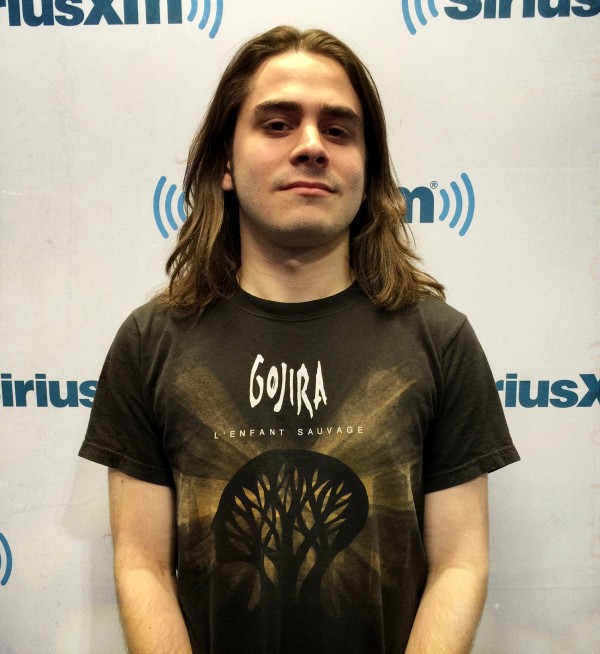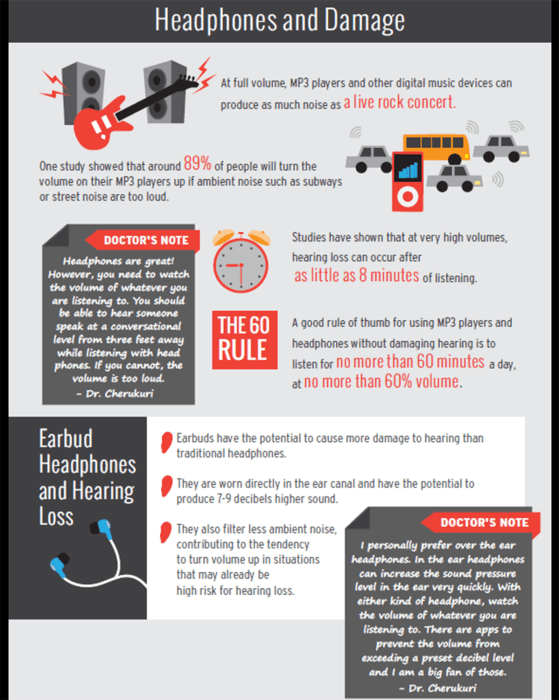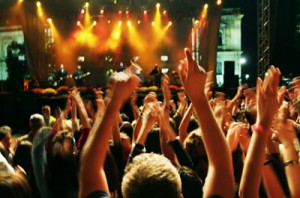Festival season’s coming up, and it’s time to start prepping. For some, that might mean investing in some new earplugs. Our Team is committed to harm reduction on all fronts, including hearing loss prevention. We want to make sure you’re on the dance floor with us for a long time, so here are some tips to keep your ears in top shape.

Image by Gavin Whitner
What are some signs that I should wear earplugs?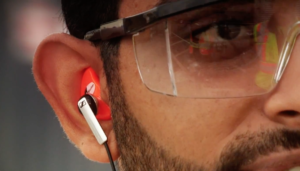
The American Speech-Language-Hearing Association warns that anything above 85db can permanently damage your ears. Chances are your favorite concerts measure 100 db or above. If you know you’re going to be at a concert, you should always wear them. As a rule of thumb, it’s too loud to go without earplugs if you need to raise your voice to talk to a friend. If they’re within three feet of you and you can’t understand them, put in earplugs right away. Other surefire signs include muffled hearing and tinnitus when you move into a quieter space. Your ears are telling you they’re under too much strain.
What factors lead to hearing loss?
The most obvious factor is the noise level of a sound, but proximity and duration also play a role in determining if you’re at risk for hearing loss. You can listen to sounds at 85 db without hearing loss for 8 hours, but after that, you’re at risk. An especially loud noise can cause hearing loss instantly. If you go hard at the rail when you’re at shows, you’re in the most dangerous range for hearing loss.
What kind of earplugs should I get?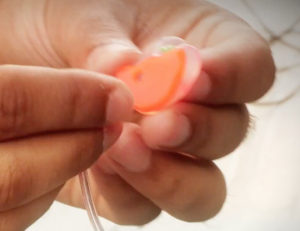
Your hearing is worth investing in, so we recommend some high-quality earplugs that will filter harmful noise but still allow you to enjoy the show. It’s helpful to check the Noise Reduction Rating (NRR) to get a general idea of how well they protect your ears but look at descriptions and reviews to see what they’re best for. Some earplugs won’t protect you against the full range of frequencies even if the NRR is high.
At Custom Protect Ear we have the dB Life™ Sweet Tones Musicians Earpieces
These are hearing protectors that reduce all frequencies equally by 9 dB, 15 dB or 25 dB with corresponding Flat Attenuation Filters. It is designed for musicians or concert goers who want to hear music without distortion but with less volume.
A steep price-tag for hearing protection can be hard to swallow, but we all want you to keep listening to the music you love as long as possible. Hearing loss continues to be a major issue in the US, and youth are particularly susceptible. We hope you’ll take the plunge and spread the word to protect yours’ and your friends’ ears. Learn More about Hearing Protection
SOURCE:
Original Article: http://dancemusicnw.com/make-sure-to-pack-earplugs-festival-season/

